The Simpsons Predictions — The Most Famous Prophecies of the Series That Impress with Their Accuracy.

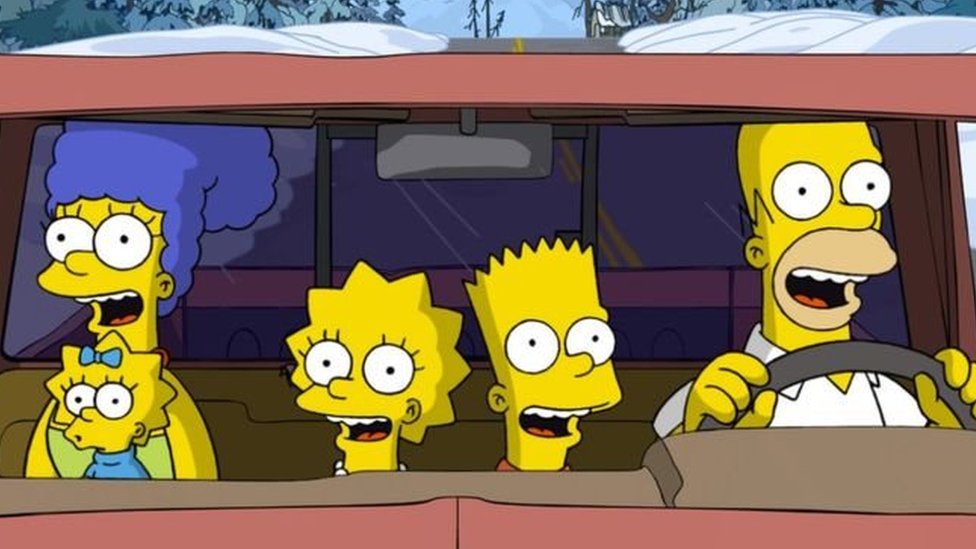
The Simpsons cartoon has always been interesting, but over Time it began to take on new meanings. We are talking about the predictions of The Simpsons. About how the series portrayed events that later occurred in reality. The Simpsons' prophecies are also relevant today.
Top-10 Predictions of The Simpsons
The Simpsons is not just an animated series. Since its debut in 1989, it has turned into a true cultural phenomenon, gaining millions of fans worldwide over the decades. At first glance, it is a satirical show about the life of an ordinary American family in the fictional town of Springfield. However, many viewers have long noticed that some of the events that initially seemed fantastic or humorous later turned out to be surprisingly accurate predictions of real events. Phenomena that once seemed nonsensical are becoming reality, and the series is increasingly discussed as a kind of 'cartoon oracle'. So, do the writers of The Simpsons really possess the ability to predict the future, or is it merely amazing coincidence: this question remains open.

The Simpsons have been airing for over three decades. Since 1989, the show has been continuously broadcast, accumulating hundreds of episodes. During this time, the series has shown dozens of fictional events — from aliens to the destruction of world empires. However, what attracts the most attention are those moments that later became a reality. Over the years, fans of the series have compiled dozens of lists of amazing 'predictions' that turned out to be surprisingly accurate. Some of them are mere coincidences, but others are a real mystery for skeptics.
Prediction of President Donald Trump
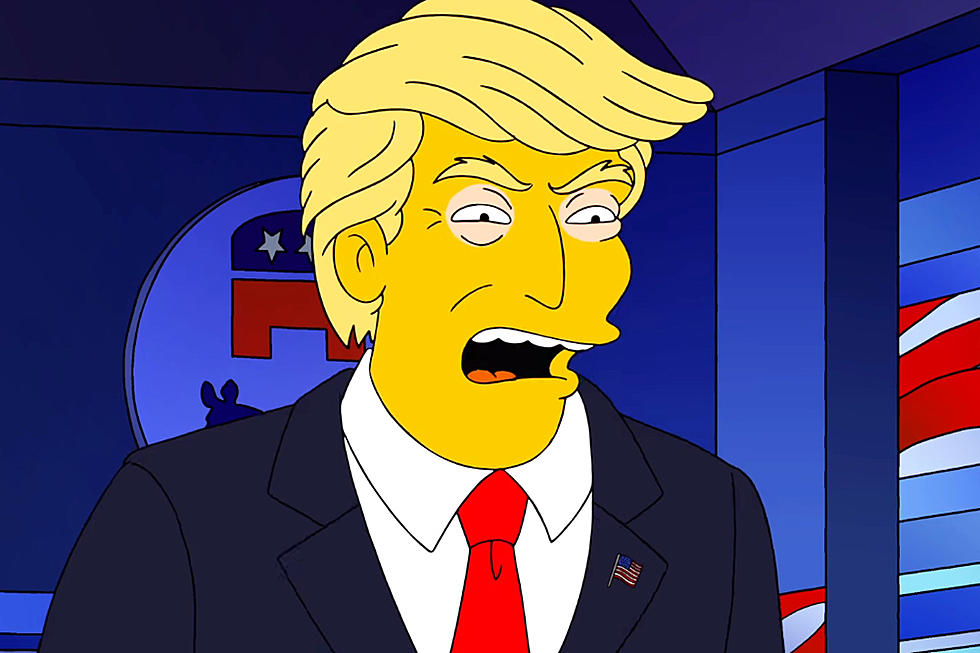
One of the most famous and discussed predictions of The Simpsons is Donald Trump's election as President of the United States. In the episode 'Bart to the Future' (2000), a future is shown where Lisa Simpson becomes president after Donald Trump. In a humorous form, Lisa mentions that she 'inherited a huge budget deficit' after Trump's presidency. This plot was initially perceived as an absurd joke. However, when Donald Trump indeed became the 45th president of the USA in 2016, this scene began circulating on the internet as an example of almost mystical prediction. Some viewers consider it just a coincidence, while others believe that the show's creators see the future better than political analysts.
Invention of Smartwatch
In 1995, in the episode 'Lisa's Wedding', viewers saw a future in which Lisa gets married. One of the characters in this episode communicates via a device resembling a smartwatch with voice communication. At that time, such technology seemed futuristic, almost fantastic. But in 2014, Apple released the first Apple Watch, whose idea remarkably resembles the device from that episode. The ability to make calls, respond to messages, and even control devices via a watch has become a reality. The impressive fact is not just the similarity but also the level of accuracy with which the series predicted the appearance and functions of the smartwatch.
Discovery of Gene Therapy
Another extraordinarily impressive and peculiar prediction related to the development of biotechnology and medicine was reflected in the famous episode from 1998 titled 'The Wizard of Evergreen Terrace'. In this episode, Homer Simpson tries to become an inventor and draws a complex formula on the wall. At first glance, this formula seems to be just a work of artistic imagination, but it turned out to be quite interesting from a scientific point of view: part of it was identified in real life as a formula related to particle physics and also had a close connection to genetics.
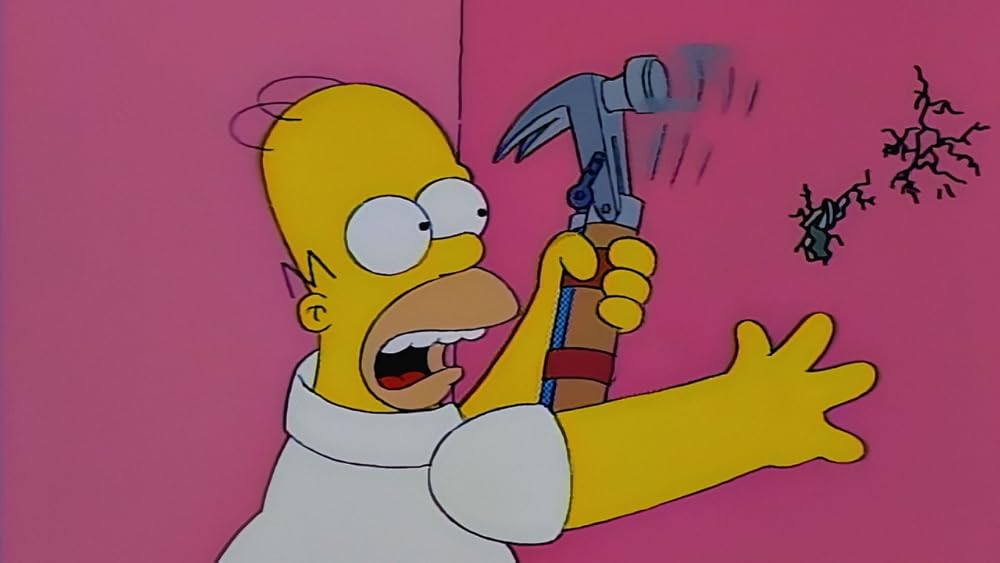
Although the accuracy of this formula has become a topic of discussion among scientists and some of its aspects remain controversial, it clearly demonstrates that the show's creators had deep knowledge and understood the directions in which modern science could develop. This became particularly evident when, in the 2010s, gene therapy began to develop rapidly and come to the forefront of medicine. Today, it is a revolutionary field that allows the treatment of previously incurable genetic diseases, correcting mutations, and even combating cancer through interventions in the genome.
While The Simpsons do not directly mention gene therapy or make it a central theme, the presence of such complex scientific formulas and hints about genes speaks to quite an accurate and premature prediction of the future development of medicine and biotechnology. This emphasizes not only the prophetic nature of the series but also its ability to draw attention to key scientific trends that will change the world in the future. The discovery and application of genetic technologies, which previously seemed like science fiction, have now become reality, and it can be said that the series had already 'shown the way' to these revolutionary discoveries.
Explosion in Fukushima
Another famous and striking predictive scene that literally became a symbol of environmental danger was shown in the 1990 episode 'Two Cars in Every Garage and Three Eyes on Every Fish'. In this episode, Homer discovers a fish with three eyes near a nuclear power plant — this was a bright ironic critique of the irresponsible attitude toward nuclear energy and a warning about the environmental consequences of such activities.
The idea of the mutated fish became a symbol of the dangers of pollution and the destruction of nature due to human negligence. The series presented this with humor and satire but with a deep subtext. That is why when a large-scale accident with explosions and radiation leaks occurred at the Japanese nuclear power plant Fukushima in 2011, many people worldwide recalled this scene from 'The Simpsons'. Although the series did not predict this specific tragedy, its satire and metaphor accurately warned about the potential dangers that can arise from the uncontrolled use of nuclear energy.
The Fukushima disaster caused long-lasting consequences for the environment, including pollution, impact on flora and fauna, and serious concerns regarding human health. Mutated or abnormal life forms, such as the three-eyed fish, became a symbol of the disruption of the natural balance and sparked numerous discussions about the safety of nuclear facilities.
Thus, although The Simpsons did not provide a specific prophecy or date for the disaster, their sharp social satire and warnings about the possible consequences of ignoring environmental and nuclear safety issues turned out to be surprisingly prophetic. This confirms that the series is not only a funny cartoon but also a profound commentary on social issues that become increasingly relevant over time.
Voting Tampering in 2012
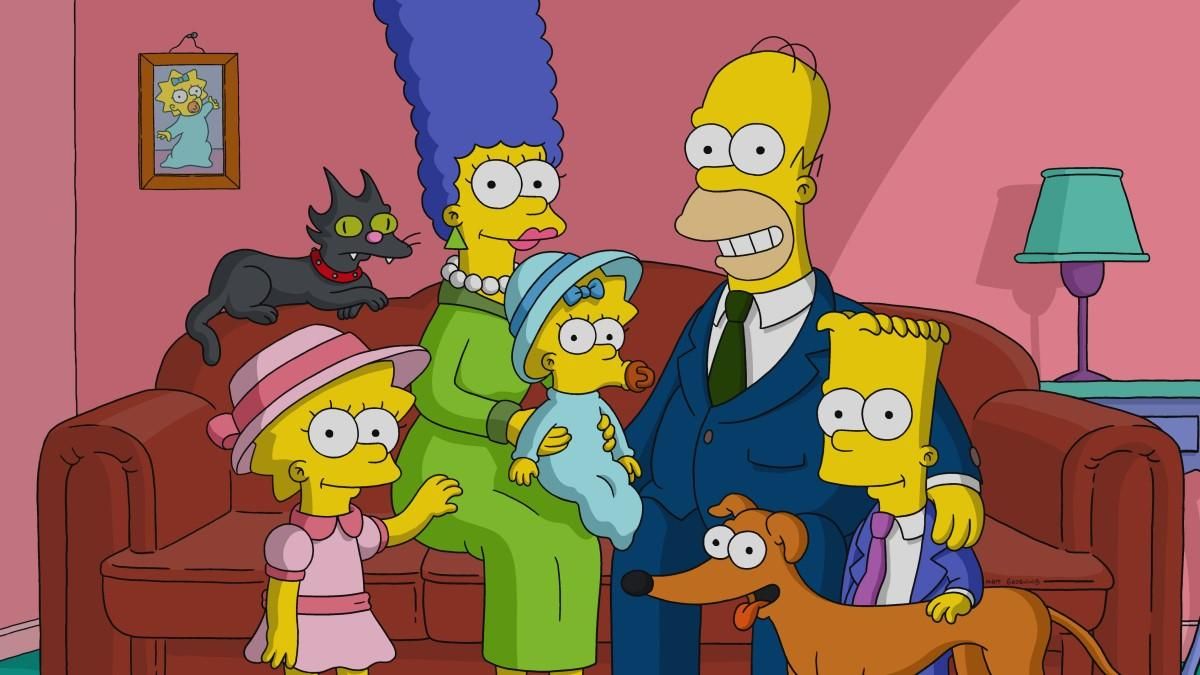
In the 2008 episode 'Treehouse of Horror XIX', Homer tries to vote for Obama, but the machine stubbornly records the vote for another candidate. This seemed like an exaggerated satire on the US electoral system. However, during the 2012 elections, real reports emerged of malfunctions in electronic voting machines. Some users indeed complained that the machines changed their selection. In Pennsylvania, for example, there was a case where pressing the name of one candidate resulted in the selection of another—and the video of this moment went viral. After that, many Americans recalled the scene from 'The Simpsons' and discussed its prophetic nature.
COVID-19 Pandemic
Although 'The Simpsons' did not directly mention COVID-19, fans found parallels with the 1993 episode 'Marge in Chains'. In it, a so-called 'Osaka flu' appears—a virus that spreads from Japan to Springfield via an infected package. The town's residents become seriously ill, panic, demand a vaccine, and spread the virus through the air — all this evokes a strange sense of déjà vu among viewers who experienced the events of 2020. Adding additional symbolism is a scene where characters accidentally drop a box, and a viral cloud emerges from it—a frame that spawned dozens of memes about predicting a pandemic. Although the series does not mention the coronavirus specifically, the similarity of the symptoms, the virus's origin, and society's reaction led many to see it as almost prophetic.
Meeting with Movie Star Michael Jackson
In 1991, in the episode 'Stark Raving Dad', a character named Leon Kompowsky appears, who believes he is Michael Jackson. The voice of this character indeed belongs to Jackson himself, although he was credited under a pseudonym. The episode itself was quite lyrical and warm, revealing another side of the character. However, fans believe that it also had some prophetic significance. In the episode, Michael helps Bart write a song for Lisa's sister. The song 'Happy Birthday Lisa' became iconic and even gained popularity in the real world later. But even more intriguing is that the episode discusses mental health issues and attempts to isolate oneself from society, which reflected the real state of the star in the ensuing years of his life. Moreover, several years after the episode aired, scandals erupted around Jackson, and the episode was pulled from airing for a time—another strange coincidence that fans perceive as a 'hint' at the troubled future of the legendary singer.
Development of Autopilots in Cars
In the 2010 episode 'The Fool Monty', a future world is depicted with a car driven without the involvement of a driver. Although this seemed a futuristic joke at the time, less than a decade later, autopilot technology began to develop actively. Companies like Tesla, Google (through Waymo), and Uber began implementing self-driving systems for cars. In the 2020s, many car models received partial or full autopilot capabilities, able to drive the car down the highway, maintain lane position, and park without a driver’s involvement. Once again, The Simpsons became a series that showcased technology before its widespread implementation. Although the creators were probably just fantasizing, the fact remains that the series predicted this milestone in technological progress.
Invention of the Selfie Stick
In the already mentioned 1995 episode 'Lisa's Wedding', there is a scene where people take pictures of themselves using a camera on a long stick. At that time, the concept of 'selfie' did not yet exist, and mobile phones were just starting to appear on the market. However, almost two decades later, a wave of self-portraits swept the world, and the selfie stick became an indispensable attribute for tourists and bloggers. It began to be mass-marketed after 2014, and you could increasingly see people in the streets of cities or near landmarks holding a stick that holds their phone. Although this scene only lasted a few seconds in the series, it is impressive for its prediction of what would become a fashionable phenomenon in the future. Once again, it is emphasized: what looks like a joke in The Simpsons is not always a joke.
Appearance of Video Calls
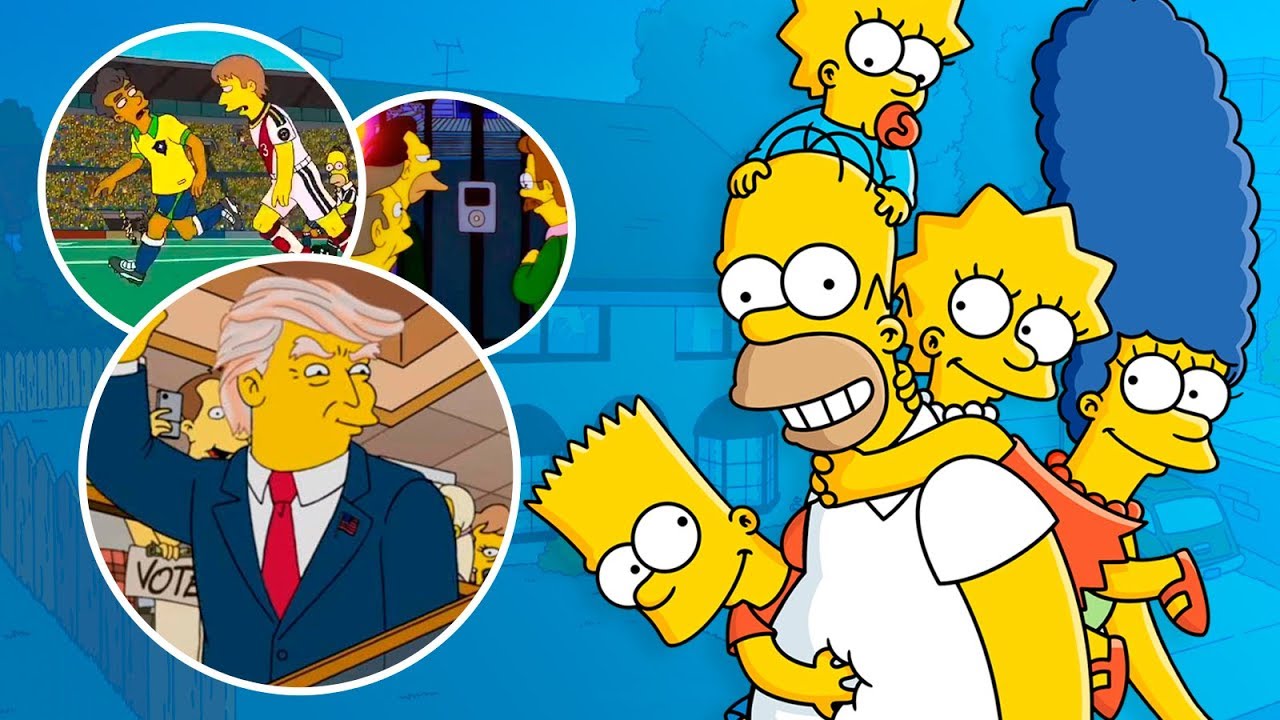
Another technological breakthrough that The Simpsons showcased ahead of everyone else was video calls. In the same episode 'Lisa's Wedding', the main character communicates with her mother Marge using a screen on which the interlocutor is visible—a video call, very similar to what was later realized in Skype, Facetime, Zoom, and other services. In 1995, such technology existed only in science fiction. However, in the series, it is presented as something commonplace in the future. Indeed, with the emergence of fast internet and cameras in smartphones, video calls became a common thing. Especially massively utilized during the pandemic, when many people transitioned to remote work and education. The series not only predicted the idea itself but also showcased it in the context of family communication, which has become the main area of use in real life.
Read also
- Stubbs predicts Trump's further role in peace talks regarding Ukraine
- Strike on Kharkiv: Main Events of the Night









